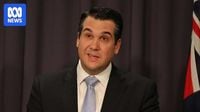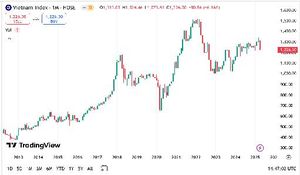In a stunning turn of events, the Australian Labor Party has secured a resounding victory in the federal election held on May 3, 2025, with Prime Minister Anthony Albanese leading a government that boasts a significantly enhanced majority. The Coalition, led by Opposition Leader Peter Dutton, faced a disastrous night, resulting in substantial losses across the board.
As the clock struck 8:24 PM, less than half an hour after the final polls closed in Western Australia, 9News projected that Labor had won the election. Political editor Charles Croucher announced, "Nine projects the election is won by Labor. There is no path for the Liberal Party or the Coalition to win. Albo gets a second go and Labor wins the election." This early projection set the tone for a night filled with unexpected outcomes.
By 11 PM, it became clear that Labor had achieved a remarkable milestone, winning a projected 90 seats, surpassing even the most optimistic pre-election polling. If these numbers hold, it will mark Labor's largest-ever seat total at a federal election, eclipsing the previous records set by Bob Hawke in 1987 and Kevin Rudd in 2007. Dutton, acknowledging the gravity of the situation, conceded both the election and his own seat of Dickson to Labor, stating, "We didn't do well enough during this campaign. That much is obvious tonight and I accept full responsibility for that."
In a gracious gesture, Dutton extended his congratulations to Albanese, wishing him and his family well. He remarked, "It's a historic occasion for the Labor Party, and we recognize that. I congratulated the prime minister and wished he and (fiancee) Jodie and (son) Nathan all the very best." Albanese's triumph is particularly notable as he becomes the first Australian prime minister to be re-elected after serving a full term since John Howard in 2004.
Celebrating the victory, Albanese expressed gratitude to the Australian people, stating, "Today, the Australian people have voted for Australian values, for fairness, aspiration, and opportunity for all. For the strength to show courage in adversity and kindness to those in need." He emphasized that Australians had chosen a future built on unity and resilience in the face of global challenges.
As the results unfolded, it became evident that the Coalition had no chance of securing the necessary swings to reclaim key seats. Instead, Labor experienced significant gains across the country, with notable swings reported from areas such as Leichhardt in Far North Queensland to Bennelong in Sydney and Bass in Tasmania. With approximately 55 percent of the vote counted, Labor's primary vote stood at 34.67 percent, reflecting a swing of more than 2 percent. In stark contrast, the Coalition struggled with a primary vote of under 31 percent, representing a drop of more than 4 percent from the previous election.
The electoral landscape revealed a shift in voter sentiment, as more than a third of the electorate opted for alternatives, including the Greens, independents, and other minor parties. Nine national affairs editor Andrew Probyn noted, "The domination between the blue and the red is no more." In a disappointing turn for the Greens, the party is set to lose all three inner-Brisbane seats it had secured in 2022, with even Adam Bandt's once-safe seat of Melbourne being too close to call.
In Victoria, the Liberal Party faced a particularly harsh reality, losing key seats to Labor amid a statewide swing against them. Labor Premier Jacinta Allan attributed the national victory to the party's success in Victoria, stating, "A lot of commentators and conservative politicians have built a career on kicking down on our state, our party, and our unions — and every time we prove them wrong."
The results in Melbourne were especially striking, as Labor's momentum swept away sitting Liberal MPs Keith Wolahan and Michael Sukkar from their seats of Menzies and Deakin. Despite extensive campaigning on cost-of-living issues, the Liberals failed to make significant inroads in the outer-suburban areas of Melbourne.
In the inner-east stronghold of Kooyong, the Liberals were unable to reclaim the seat, with teal independent Monique Ryan successfully defending her position. Similarly, first-term teal MP Zoe Daniel appeared set to fend off a challenge from former Liberal MP Tim Wilson in Goldstein. Meanwhile, incumbent Liberal MPs Jason Wood in La Trobe and Aaron Violi in Casey were ahead in the race to retain their seats on Melbourne's eastern fringe.
As the dust settled, senior Liberal figures acknowledged the need for a thorough review of their campaign strategies. Victorian Liberal senator Jane Hume conceded that the party must reflect on its election efforts moving forward, stating, "I will concede that there are things that we are going to have to look at in terms of the way we campaigned in this election that we will never do again."
Former Liberal strategist Tony Barry emphasized the need for the party to reassess its approach, noting, "The preconditions were there for a very significant swing to the Coalition, a very unpopular state government. Yet it appears the Liberal Party is going backwards."
Labor's success extended beyond individual seats, as the party was expected to hold onto key marginal seats, including Chisholm, Dunkley, and Aston, while also winning Deakin and Menzies from the Liberals. In Macnamara, Labor's Josh Burns was predicted to retain his seat despite facing a strong challenge from both the Liberal Party and the Greens.
Burns, who represents a constituency with a significant Jewish population, celebrated his anticipated victory, stating, "I honestly didn’t think this night would happen. We had blue to the right and green to the left, but the red army turned up." His remarks underscored the unexpected resilience of Labor in a challenging electoral environment.
As the final results continue to unfold, the ramifications of this election are poised to reshape the political landscape in Australia. With Labor's historic win and the Coalition's significant losses, the future of both parties remains uncertain as they navigate the aftermath of this transformative election.





